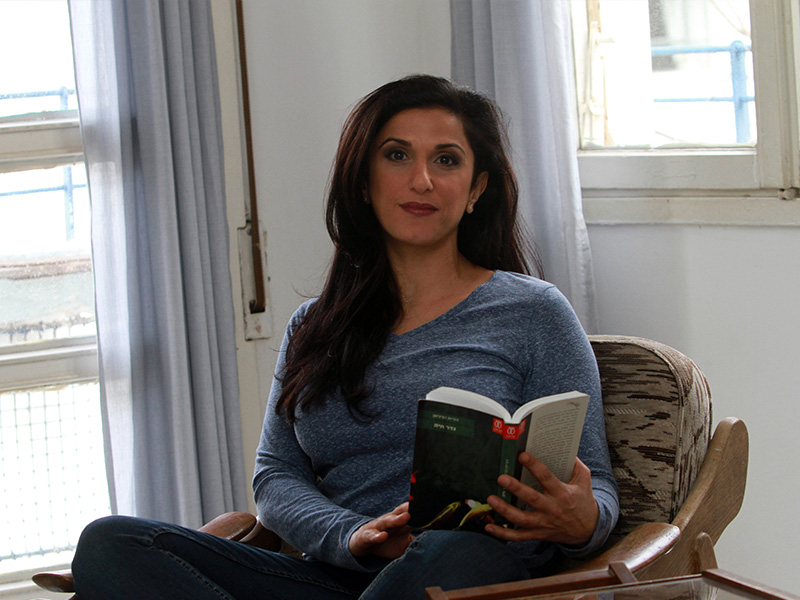Dorit Rabinyan, an Israeli author whose latest novel, Gader Haya – first known as Borderlife in English and now published as All the Rivers – put her at the centre of a controversy after the book was nominated to be included in Israel’s high school literature curriculum but the Ministry of Education declined to add it on the grounds that it could promote intermarriage and assimilation.
All the Rivers chronicles a complicated love story between an Israeli woman and a Palestinian man. Rabinyan was in Toronto recently to promote the release of the English translation of her 2014 book, and spoke to The CJN at an event organized by the New Israel Fund about the controversy surrounding it.
What is the book about and why has it become so controversial?
The protagonist narrator, the Israeli Liat, arrives in New York and she meets a Palestinian, Hilmi, an artist from Ramallah who had spent the last four years in Brooklyn. After a chance encounter through a mutual friend, they start a relationship of a few months, during the course of a very harsh winter in New York that serves as a contrast to their Middle Eastern existence. They experience together both the exile of being away from home and their shared homeland. They don’t miss the landscape, they don’t miss the soil, they don’t miss the people, not even the language. They miss the sun. The sun serves as their true, most fundamental motherland. It’s the warmth that they connect being at home with.
‘the only threat this book might have is for their huge ongoing effort to eliminate the Palestinian other, the Palestinian partner, the Palestinian neighbour’
My book received much applause and a warm embrace by the Israeli readership. It got good reviews and was awarded with prestigious local awards. It was a bestseller and 18 months had passed and I thought I would start writing a new book. But then, on the last day of 2015, Dec. 31, it was published in Ha’aretz that my book was officially excluded from the obligatory curriculum for high school because of those arguments stated in a report by the ministry committee, nominated by Naftali Bennett, the minister of education. Those arguments created a huge scandal.
The committee ruled to exclude the novel from the curriculum, citing a threat to Jewish identity from normalizing interfaith relationships. Do you think that was the real reason?
No. That was the reason the committee was formulating, maybe to please their master, but I read with artistic eyes, I decipher the subtext, the report, and the threat to Jewish identity and that this book might encourage assimilation. I read something else. I read that the only fearful element for them, the only threat this book might have, is for their huge ongoing effort to eliminate the Palestinian other, the Palestinian partner, the Palestinian neighbour. (They say) there is no Palestinian partner, as the slogan has been going for the past 20 years, since the assassination of (former Israeli prime minister Yitzhak) Rabin, or there is no such thing as the Palestinian people, Palestinian nation.
‘They don’t miss the landscape, they don’t miss the soil, they don’t miss the people, not even the language. They miss the sun’
They try to deepen the Israeli self-absorbed existence as the lonely island in this Arab sea, in the Arab neighbourhood that we’ve existed in for the past 70 years.
The most, let’s say, popular description of the Palestinian is very scary, demonized, blackened with radical Islam. And all this propaganda, it’s so much in the culture that I don’t know a word beyond propaganda.
Were you surprised when the ministry rejected your novel?
I was overwhelmed because I had been living in a democratic state ever since I was born in Israel and my whole existence is based on freedom of speech and freedom of thought and I am a product of this Zionist great project. I could never have expected that my novel be declared a danger to Jewish identity.
It transfers the reader’s identity to the other’s identity like good literature does. And it suggests to see the other, not only as equal and not only as human.… This neighbour is the only one you’ve got and this identification, this going through somebody else’s skin and seeing reality through someone else’s gaze, and having your shared life, your destiny, your shared destiny, dependent destiny to be decided upon a dual perspective, not only a selfish, ego-centric point of view.
READ: BIRTHWRONG CHANCE TO SEE FRANCE’S SECULARISM UP CLOSE
Did you feel like the controversy turned a love story into something political?
It is political. Being an Israeli and Palestinian and meeting in New York… After reading it, you can see the struggle the characters are going through to let go of the politics … and to be able to see each other freely, on common ground, with respect.
What was the inspiration behind the book?
My experience being in New York and getting involved with a group of Palestinian intellectuals, scholars, artists, and getting to explore my Israeli identity for the very first time. (We discussed how,) on the ground, peace can be maintained very easily and very joyfully as twins acknowledging how much they are alike, and how much they’ve been separated and how much they were forced into hating each other. Having young adults acknowledging who is the kid behind the wall that has been demonized and turning him back to being human is a very liberating.
What did this whole experience teach you?
My literary work was transferred into a symbol for the freedom of speech in Israel and I gained and benefited so much, not only as an author and a person, but also as a believer that Israelis care too much to be antipathetic, as the government hopes them to be.
This interview has been edited and condensed for style and clarity.
